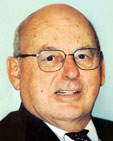Ex Senator gives China his seal of approval
By Zhang Haizhou (China Daily)
Updated: 2008-03-31 07:17
Updated: 2008-03-31 07:17
Former Illinois Senator Adlai Stevenson III's first meeting with the Chinese people was on the battlefield during the Korean War. But that unsavory introduction did not stop him from later dedicating himself to the improvement of Sino-American relations.
|
|
Stevenson III today is still active in that endeavor at the advancing age of 77. The grandson of former US vice-president Adlai Stevenson I was in Beijing last week as co-chairman of HuaMei Capital Company (HMCC).
The HMCC is not only the first Sino-US investment bank but also a crucial part of deepening mutual understanding between Washington and Beijing, according to Stevenson III, a member of the first US congressional delegation to China that was received by then-vice premier Deng Xiaoping in 1975.
Sitting in a lovely traditional Beijing-style courtyard, Stevenson could barely contain his excitement while recalling his first stay in China 33 years ago.
"That was a different China," he recalled of the adventure in which he traveled widely across the eastern part of the country. "We found that the people we met in the streets did not want to communicate. They were all dressed in their Mao jackets.
"I think they did not want to be seen as communicating with foreigners. We were known as 'running dogs of capitalism'."
These first impressions reinforced the urgent need to build and improve mutual understanding between the two nations. But the task was easier said than done, because it would take another four years before bilateral ties between Beijing and Washington were normalized.
But the tardy normalization process did not stymie the friendship between the Chinese people and Stevenson III, whose father Adlai Stevenson II, a former Democratic presidential candidate in 1952 and 1956, had always advocated normalization. After losing both elections to Dwight Eisenhower, Stevenson II served as US ambassador to the United Nations from 1960 to 1965.
Stevenson III said he became a friend of Han Xu, China's ex-representative in the US prior to diplomatic recognition in 1979, and it was he who facilitated the 1975 congressional delegation to China.
"Han Xu was a wonderful man! He became a friend of us, and I hosted a farewell party for him at the capitol when he was departing his first assignment in Washington," says Stevenson III, adding senators and representatives crowded the dining room to toast Han and sing farewell songs.
Stevenson III has returned to China various times since the 1970s - as a senator, a lawyer and a policy expert, among other roles.
Dramatic changes have taken place in China not only in economics, but also notably in people's attitude toward the world.
"People now come up on the streets. They want to find out where you are from. They want to practice their English. It's wonderful and so exciting," Stevenson III says.
"Americans who do come here, making efforts to understand China, are very excited by what is happening, China's peaceful rise and development and the opportunity it creates," he says, adding the Americans can learn a lot from China's peaceful rise and development.
"Then we create cooperative efforts to solve the world's problem."
|
||
|
||
|
|
|
|
